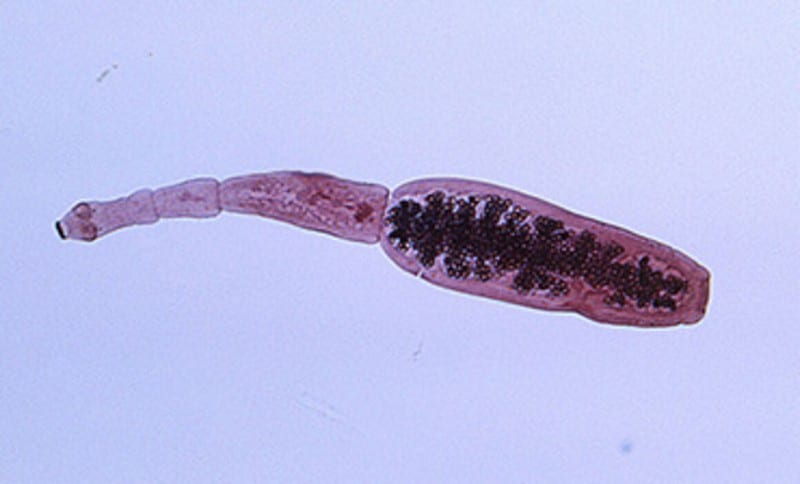Echinococcus Tapeworm

Hydatid disease occurs when a person ingests food or water contaminated with tapeworm eggs. The eggs hatch in the intestines and mature into adult tapeworms. The tapeworms then release larvae into the bloodstream, which eventually settle in various organs, including the liver, and form cysts.
Echinococcus tapeworms are parasites that can infect humans and animals. They’re commonly found in dogs, but they can also be found in sheep, pigs, foxes, and other animals. Humans can become infected with these parasites if they come into contact with contaminated soil or water or eat infected meat that hasn’t been cooked properly. Once the parasite enters the human body, it travels to the liver, where it grows and produces eggs.
Studies have shown that up to 20% of people with liver cysts also have an infection with Echinococcus tapeworms. Echinococcus tapeworms grow slowly over time and can eventually reach a diameter of several centimeters. They are often asymptomatic, but in some cases, they can cause pain or discomfort when they press against other organs or blood vessels. In very rare cases, hydatid disease can be fatal if the cysts rupture and release their contents into the abdomen or chest cavity.










